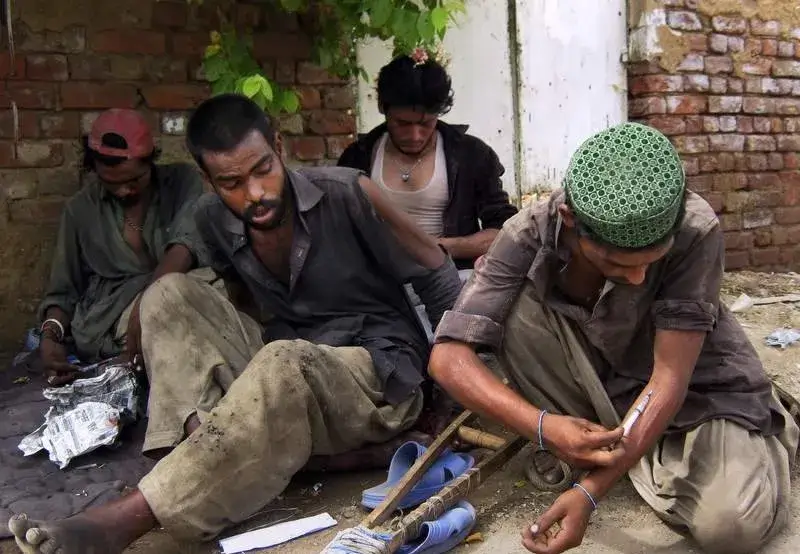Drugs are rendering our youth as useless as termites render wood. They are becoming a scourge in our society, slowly taking over the bodies and minds of our youngsters and rendering the younger generation ineffective. The trafficking of drugs in Pakistan poses a significant threat to our youth, as their addiction signifies the destruction of Pakistan’s future.
A major contributor to the prevalence of drugs in Pakistan is the influx of Afghan refugees following the US invasion in 2001. Primarily, young people between the ages of 15 and 30 are more prone to drug addiction. Various factors contribute to youth drug addiction, including unemployment, peer pressure, adverse environments, academic stress, depression, abuse, and ignorance.
To combat this issue effectively, we must understand the root causes of drug abuse in Pakistan and address them. In 1987, the United Nations General Assembly designated June 26 as the International Day Against Drug Abuse.
Primarily, young people between the ages of 15 and 30 are more prone to drug addiction.
According to surveys conducted in Pakistan, an estimated 7 million people are drug users, including students, beggars, employers, and general duty servants. As a nation facing numerous challenges, many turn to drugs to escape their problems, with unemployment being a major issue leading to mental health struggles, depression, and even suicide.
The proximity to Afghanistan, a major producer of drugs, exacerbates Pakistan’s drug problem. With Afghanistan’s instability, drug production serves as a means to control poverty and other issues. The high demand for drugs in Pakistan further fuels this cycle, leading to devastating consequences for both nations. Additionally, the erosion of ethical and moral values, parental neglect, westernization, and the influence of the media contribute to the rising trend of drug addiction among youth.
The impact of drug addiction extends beyond individual health, significantly affecting Pakistan’s economy and security. Health issues related to drug abuse, particularly mental health problems, are on the rise. Drug addicts often engage in criminal activities, posing a threat to national security. Moreover, the negative perception of Pakistan as a result of drug-related issues deters tourists and investors, further harming the nation’s reputation and economic prospects.
The erosion of ethical and moral values, parental neglect, westernization, and the influence of media contribute to the rising trend of drug addiction among the youth.
To counteract these challenges, it is imperative to strengthen law enforcement efforts to combat drug trafficking and expand employment opportunities to empower youth positively. Additionally, promoting awareness and providing support to those struggling with addiction are crucial steps in safeguarding Pakistan’s future.
Every young person is a valuable asset to the nation, and it is our collective responsibility to protect them from the scourge of drugs and ensure a prosperous future for Pakistan. Failure to do so would mean jeopardizing our own future.










